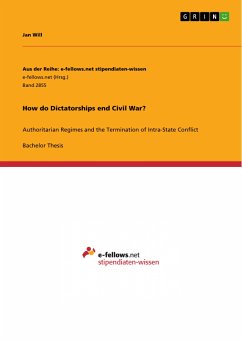Dictators and Dictatorships is a qualitative enquiry into the politics of authoritarian regimes. It argues that political outcomes in dictatorships are largely a product of leader-elite relations. Differences in the internal structure of dictatorships affect the dynamics of this relationship. This book shows how dictatorships differ from one another and the implications of these differences for political outcomes. In particular, it examines political processes in personalist, military, single-party, monarchic, and hybrid regimes.
The aim of the book is to provide a clear definition of what dictatorship means, how authoritarian politics works, and what the political consequences of dictatorship are. It discusses how authoritarianism influences a range of political outcomes, such as economic performance, international conflict, and leader and regime durability.
Numerous case studies from around the world support the theory and research presented to foster a better understanding of the inner workings of authoritarian regimes. By combining theory with concrete political situations, the book will appeal to undergraduate students in comparative politics, international relations, authoritarian politics, and democratization.
The aim of the book is to provide a clear definition of what dictatorship means, how authoritarian politics works, and what the political consequences of dictatorship are. It discusses how authoritarianism influences a range of political outcomes, such as economic performance, international conflict, and leader and regime durability.
Numerous case studies from around the world support the theory and research presented to foster a better understanding of the inner workings of authoritarian regimes. By combining theory with concrete political situations, the book will appeal to undergraduate students in comparative politics, international relations, authoritarian politics, and democratization.









